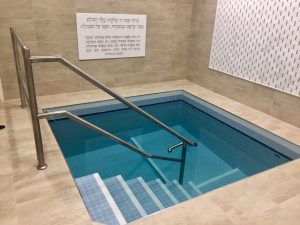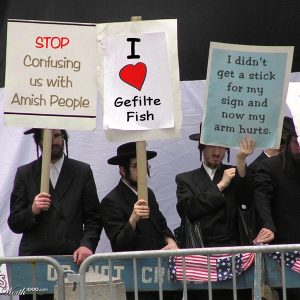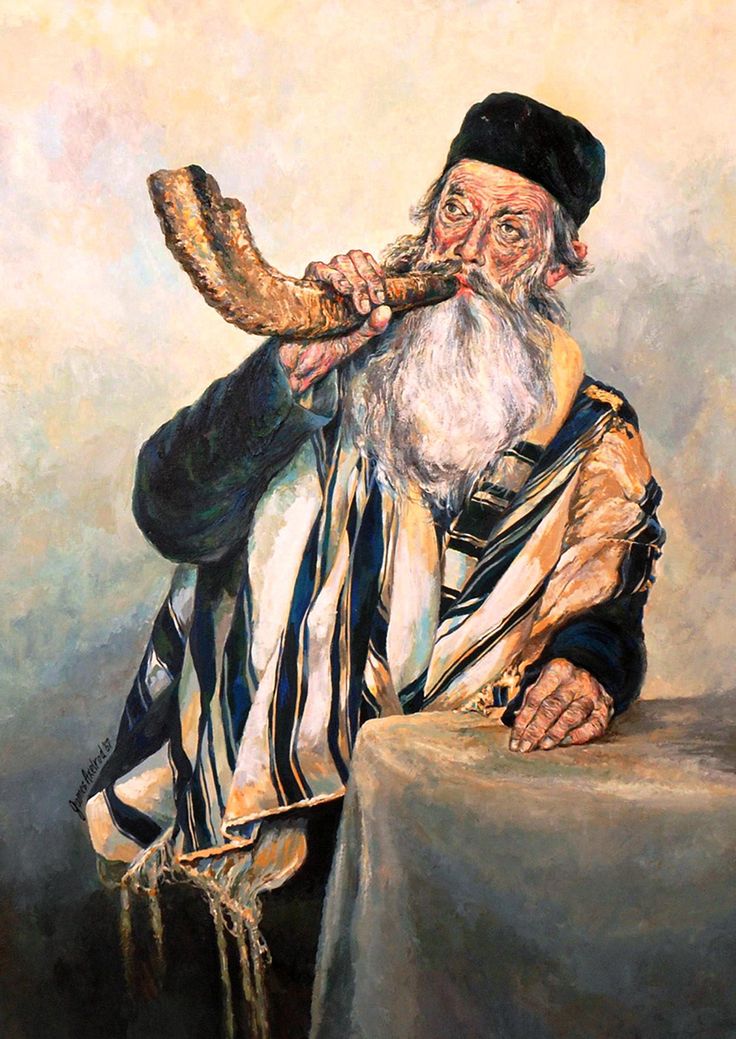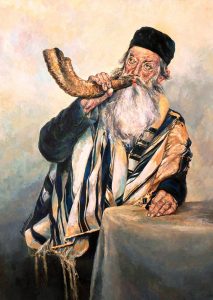Rosh Hashono Message:
Though many of us will be dipping our apples into our honey tomorrow evening and hopefully a few more times over Yom Tov, if you chap, efsher you are aware or should be, that there is an old minhag (custom) to do some other dipping before we usher in the great Yom Tov of Rosh Hashano, the holiday that for some reason or another, all Yiddin, no matter their level of practice or affiliation, observe in some fashion.
And taka early tomorrow morning, as he has done kimat every year since his father, OBM, and uncle took him at the tender and impressionable age of seven, and though still traumatized by a few (too many) awkward experiences, the Oisvorfer will with great trepidation and fear once again prepare himself physically and psychologically for his twice yearly dip, this one into the mikveh (ritual bath) for some spiritual cleansing in advance of the big days ahead. And after 50+ years of mikveh dipping, though avada being most diligent about never bending over, if you chap, and without asking too many questions, the Oisvorfer began to ponder this strange ritual; how could mikveh dipping into waters shared by hundreds cleanse us? And when did mikveh dipping become a ritual; is it a minhag (custom), a mitzvah or a din (rule)? And why has the mikveh over the years attracted so many deviants who are seemingly there for no other reason than to prey on the unsuspecting? Taka excellent questions, let’s see if we can answer a few. Lommer lernin.
 Efsher you’re wondering what special power the mikveh has to purify and why we have this practice altogether. Nu, some say that the deeper meaning behind this practice of immersing on Erev Rosh Hashono goes back to the mother’s womb where it all began. Immersing in a Mikveh likely serves as a reenactment, of sorts, of man’s initial emergence into the world. As part of the process of Teshuva (repentance), a person returns to the water, to his origin and source, to the initial state of pristine purity in which he was first created, representing his efforts to spiritually cleanse himself and become pure like he had been at birth. Sounds plausible, ver veyst.
Efsher you’re wondering what special power the mikveh has to purify and why we have this practice altogether. Nu, some say that the deeper meaning behind this practice of immersing on Erev Rosh Hashono goes back to the mother’s womb where it all began. Immersing in a Mikveh likely serves as a reenactment, of sorts, of man’s initial emergence into the world. As part of the process of Teshuva (repentance), a person returns to the water, to his origin and source, to the initial state of pristine purity in which he was first created, representing his efforts to spiritually cleanse himself and become pure like he had been at birth. Sounds plausible, ver veyst.
Just last week as the Oisvorfer was researching his pearls of wisdom for parsha Netzovim, he came across this shtikel from The Ben Ish Chai (Rabbi Yosef Chayim of Baghdad, 1833-1909). Said he: the reason behind the widespread minhag that men immerse in a Mikveh on Erev Rosh Hashono, is so that the Yiddin will be Tahoir (ritually pure) on the Day of Judgment. Sounds logical and gishmak! Moreover, mikveh immersion, in advance of this big Yom Tov of Rosh Hashono is particularly important for men with Tumas Keri. What the hec is tumas keri? You are! Just a shtikel humor and avada the Oisvorfer begs mechila (forgiveness) for suspecting otherwise. Ober just in case this epes rings familiar, soon we’ll expound. For now, let’s go with the flow. Lommer lernin (let’s learn).
And says the Ben Ish Chai: Not only must the keri carrier go but he must also, prior to immersion, ensure to comb any knots in his hair and remove all traces of dirt from his entire body, including under the fingernails. In order for the immersion to be effective in eliminating Tuma (impurities), no substance may come in between the body and the water. And if you think this sounds more like the ritual that the eishes chayil goes through, you are mamish correct. So what taka is a ba’al keri?
Poshit geredt (in plain English): If one experiences any release of seminal fluid, he acquires tumas keri and is called a ba’al keri. Shoin! Luckily for many of you, we no longer have a Beis Hamikdash (holy temple) where there were real consequences ober being a ba’al keri does have ramifications even without a standing Beis HaMikdash and even in our times.
 Says the heylige Gemora, (Rosh HaShono 16b): there is an obligation to purify oneself prior to a festival. And says the RambaM (1138-1204), Hilchos Tumas Ochlin 16:10: the purpose of this obligation is so that one can enter the Beis HaMikdash and eat Kodshim (sacrificial meats). According to Rambam, the custom of immersion prior to Rosh HaShono and Yom Kippur is ostensibly not based on the obligation to purify oneself prior to a festival. On Rosh HaShonoh and Yom Kippur there are no sacrifices that one must eat. Furthermore, nowadays, we do not offer sacrifices.
Says the heylige Gemora, (Rosh HaShono 16b): there is an obligation to purify oneself prior to a festival. And says the RambaM (1138-1204), Hilchos Tumas Ochlin 16:10: the purpose of this obligation is so that one can enter the Beis HaMikdash and eat Kodshim (sacrificial meats). According to Rambam, the custom of immersion prior to Rosh HaShono and Yom Kippur is ostensibly not based on the obligation to purify oneself prior to a festival. On Rosh HaShonoh and Yom Kippur there are no sacrifices that one must eat. Furthermore, nowadays, we do not offer sacrifices.
Says the heylige Mishna (Berachois 20b) azoy: a ba’al keri may not learn the heylige Toirah or recite brochois (blessings) until he enters a mikveh. And says the heylige Gemora (Berachos 22b) azoy: this institution dates back to Ezra HaSoifer. And based on this teaching, one would expect a significant back up at the mikveh entrance each morning. Mistama you’re perplexed to see that shuls and yeshivas are still full of talmidim so early in the morning. Ober the reality is that but a few taka do this ritual daily, a few more on Fridays before the heylige shabbis and many many more, oisvorfs included, on erev yom tov; what’s taka pshat? And what taka happened to this rule?
It turns out that since the velt (world) was swimming in Keri, changes needed to be made. Seemingly there were way too many Keri carriers, the shuls and schools were empty, no one was qualified to daven for the amud (lead services), the mikvehs were overcrowded and the rules needed to be changed, In fact, they seem to have disappeared altogether; rules out, keri in! Shoin! And says the heylige Gemora: many people adopted the ruling of Reb. Yehuda ben Beseirah who stated emphatically that the original institution (mikveh ruling) was repealed. Givaldig!
And to make the lives of the Keri carriers a shtikel easier, no lesser an authority than the Shulchan Aruch, Oirach Chaim (88:1), adopts the position that the original institution was totally repealed and no purification is required in order for a ba’al keri to learn Toirah or recite brochois. This avada proves another point rebbe made daily: learning Toirah is above all. Double gishmak!
 And says the Kol Bo (anonymous author, 14th-15th century) no. 64: that the repeal of the original institution was based on the difficulty of observing it, no kidding! Mistama you can think of a few dozen other rules that could use a similar fate ober that for another day. Ober when it comes to the davening on the big high holy days of RH and YK,, we observe the institution of dipping into the mikveh – at one’s own risk of course- because their prayers require a higher level of sanctity.
And says the Kol Bo (anonymous author, 14th-15th century) no. 64: that the repeal of the original institution was based on the difficulty of observing it, no kidding! Mistama you can think of a few dozen other rules that could use a similar fate ober that for another day. Ober when it comes to the davening on the big high holy days of RH and YK,, we observe the institution of dipping into the mikveh – at one’s own risk of course- because their prayers require a higher level of sanctity.
Seemingly, that would account for the long lines at the mikveh on this day. Shoin: now it’s all clear; all in please! Even before the rule was repealed not everyone agreed with Ezra about the dipping process and said the Chacham Ovadia Yosef, (Halichot Olam) azoy: the Ben Ish Chai is all wet and his ruling is overly stringent. And given that Halacha follows the view that one may daven (pray) and study the heylige Toirah in a state of ritual impurity, it is only a “midas chasidus” (an additional level of piety) to immerse before prayer or study. Therefore, since this immersion is altogether on the level of “midas chasidus,” a man is not required to prepare his body for immersion on Erev Rosh Hashano as a woman must upon completing her Nidda period. Thus, one need not remove his contact lenses or untangle his knots before immersing on Erev Rosh Hashono. This is taka a great relief because wandering around the mikveh without clear sight, could lead one to being blindsided or rear ended, if you chap.
Of course there are others who suggest that going to the Mikveh is one of the most important actions needed to remain pure and that every person should try to go every day, especially people living outside of Israel (suggesting of course that we all live in a big world of impurity). They do however offer leniency to those that find it impossible to go every day. These good folks should at least go on Erev Shabbis, Erev Rosh Hashono and Erev Yom Kippur, the last two being mandatory for those who don’t want to enter judgment in an impure state. And the bombshell: If a person experienced a nocturnal emission (Mikre Liyla), he must do everything in his power to go to the Mikveh as soon as possible. The good news: for those who experience such emissions while at the mikveh, nu, immersion is within reach. Shoin!
Ober what about well intentioned individual who resides in an area where a mikveh is inaccessible? And what about the mamish modest person who is not comfortable being seen sans clothing and or efsher a person who doesn’t want to see others in a state of complete undress? Are these well intentioned people out of luck when it comes to being judged by the RBSO on the high holy days? Seemingly not and there’s givaldige news. Accommodations have been made and that person may, seemingly render himself ritually pure by self watering. It’s not what you think, Avada we chap how a person can on his own become impure ober how can he purify himself without the mikveh? Nu, says Maran Harav Ovadia Yosef azoy: he may become purified by pouring nine Kabin (unit of measure) of water onto himself. Nine Kabin is equal to twelve-and–a-half liters of water.
 Efsher you’re thinking that it’s easier to just take a shower and make sure that you stay in long enough to have the correct measure of water douse your body and you would be mamish a gaon- (genius) for coming up with this brilliant idea. Ober the poiskim (halachic decisors) argue amongst themselves, what else is new, as to the validity of the shower. Does it or doesn’t it purify the ba’al keri? Is he good to go? Does the shower do the trick? Said the Chazon Ish azoy: the shower is not good and taka why? Because the showerhead has small holes and small holes cannot seemingly produce the effect of nine Kabin of water being poured on the keri fellow all at once. Thankfully, there are other opinions and said Maran Harav Shlit”a that one may be purified by showering and making sure that enough water douses him. Settled!
Efsher you’re thinking that it’s easier to just take a shower and make sure that you stay in long enough to have the correct measure of water douse your body and you would be mamish a gaon- (genius) for coming up with this brilliant idea. Ober the poiskim (halachic decisors) argue amongst themselves, what else is new, as to the validity of the shower. Does it or doesn’t it purify the ba’al keri? Is he good to go? Does the shower do the trick? Said the Chazon Ish azoy: the shower is not good and taka why? Because the showerhead has small holes and small holes cannot seemingly produce the effect of nine Kabin of water being poured on the keri fellow all at once. Thankfully, there are other opinions and said Maran Harav Shlit”a that one may be purified by showering and making sure that enough water douses him. Settled!
Are you halting kup (following along)? Let’s chazir: le’oilom (generally speaking), the shower purification method, even with bigger shower head holes, is not the preferred method and the preferred method is that one should have the total mikveh experience. This includes the long wait lines, the jacked up Yom Tov prices, the one towel limit and the uncomfortable feeling one gets when he meets his own rabbi on line- or worse- in the mikveh itself. And though this is taka bad, it’s not half as bad as meeting his 4th grade rebbe or pirchei leader. Moreover, all agree that this loophole, does not work for the eishes chayil who will always remain impure until she immerses in a Mikveh mamish as prescribed by Halacha. A shower before and after is also good.
And concludes the heylige Gemora azoy: “If nine kavim of water are poured on a ba’al keri, he is tahor. Nachum Ish Gamzu whispered this to Rebbe Akiva, Rebbe Akiva whispered it to Ben Azai, and Ben Azai went out and taught it to his students in the marketplace. And that’s how mikveh talk all got started. Today of course, mikveh talk has expanded to stock tips and the latest gossip.
And the bottom line? It is seemingly proper and not a terrible idea for a man to immerse in a Mikveh on Erev Rosh Hashano. Seemingly this immersion symbolizes the emergence of the human being from the womb in a state of pristine purity. And before the big dip, a man is not required to undergo the thorough process of cleaning his body and removing foreign substances such as contact lenses, as is required of a woman who immerses to divest herself of her Nidda status. The custom is to dip in a mikveh on erev Rosh Hashono in honor of the big important days, however this isn’t required according to the law and therefore a brocho isn’t recited and the laws aren’t as strict. Ober, if one cannot make it to a mikveh, he should try to have 9 kavin (approximately 12 liters) of water poured over himself, even if in the shower.
Avada we go to the mikveh to turn a new page ober experience from mikvehs past have taught the Oisvorfer that while turning a new page is good, turning around is not recommended!
The Oisvorfer and eishes chayil (also editor in chief), and trusted webmaster Mike Kogan, would like to take this opportunity to wish his entire burgeoning readership, both here in the United States and abroad, a meaningful Rosh Hashono and an overall givaldige Yom Tov and year ahead. May the coming year bring you peace of mind, peace at home, any other peace you might be seeking, if you chap, good health, and zicher (of course) a few extra dollars wouldn’t hurt anyone, would it?
Avada the Oisvorfer would love to speak personally with each and every reader and Oisvorf follower before this special Yom Tov of Rosh Hashono when we renew our commitment to the RBSO by davening while looking at our watches every now and then to see how much longer until the end, by marathon eating, by dipping apples and other fruits, if you chap, and telling the RBSO that beginning this very Yom Tov, we will conduct ourselves properly, perform all the required mitzvois ah-say (thou shall do’s) and avoid the forbidden ones. Alas, this is not at all possible. Let’s get real: your tshuvah (repentance), though heartfelt -for moments in time during Rosh Hashono itself- and promises of good behavior made to the RBSO, might -though mistama not- last until Yom Kippur. Shoin, the RBSO understands us well. We are but human.
 Ober why talk by phone when the RBSO in His magnificence allowed technology to progress to the point where we have many other devices that can deliver such warm greetings? Avada we chap that everything the RBSO has allowed to be invented is for a good reason and sending out Rosh Hashono greetings and asking for mechila (forgiveness) by email, text message, Facebook and other such mediums, might be one of those.
Ober why talk by phone when the RBSO in His magnificence allowed technology to progress to the point where we have many other devices that can deliver such warm greetings? Avada we chap that everything the RBSO has allowed to be invented is for a good reason and sending out Rosh Hashono greetings and asking for mechila (forgiveness) by email, text message, Facebook and other such mediums, might be one of those.
That being said, the Oisvorfer wishes upon all his readers, followers, fans, those who officially receive the heylige Toirah weekly, those who log on to the site because chas v’sholom they should officially receive it, and even to those who deny ever receiving or reading it but do so religiously, the best year ever, followed by more of the same.
May the RBSO taka forgive you, us, and avada and avada the Oisvorfer, as He has done for generations ever since selecting the Yiddin to be His people; seemingly He knew what He was getting and we haven’t ever disappointed..
K’siva- Vachasima Toiva and a git gibentched yur (may you be inscribed for good, may it be so sealed and have a great and blessed year.)
A gittin Yom Tov!
The Heylige Oisvorfer Ruv
Yitz Grossman

